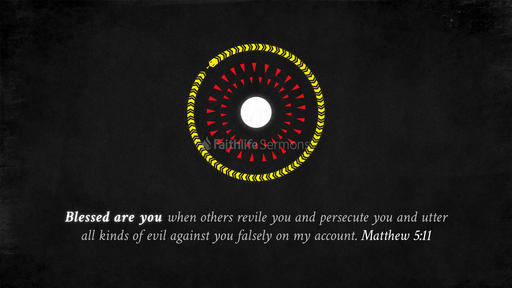What In The World Is Going On? - pt.1
Paul's exhortation and warning to Timothy concerning the direction of the church.
Introduction
IT is a rule, Sir, which I inviolably observe, to refer myself to you in all my doubts; for who is more capable of guiding my uncertainty or informing my ignorance? Having never been present at any trials of the Christians, I am unacquainted with the method and limits to be observed either in examining or punishing them. Whether any difference is to be made on account of age, or no distinction allowed between the youngest and the adult; whether repentance admits to a pardon, or if a man has been once a Christian it avails him nothing to recant; whether the mere profession of Christianity, albeit without crimes, or only the crimes associated there-with are punishable—in all these points I am greatly doubtful.
In the meanwhile, the method I have observed towards those who have been denounced to me as Christians is this: I interrogated them whether they were Christians; if they confessed it I repeated the question twice again, adding the threat of capital punishment; if they still persevered, I ordered them to be executed. For whatever the nature of their creed might be, I could at least feel no doubt that contumacy and inflexible obstinacy deserved chastisement. There were others also possessed with the same infatuation, but being citizens of Rome, I directed them to be carried thither.
These accusations spread (as is usually the case) from the mere fact of the matter being investigated and several forms of the mischief came to light. A placard was put up, without any signature, accusing a large number of persons by name. Those who denied they were, or had ever been, Christians, who repeated after me an invocation to the Gods, and offered adoration, with wine and frankincense, to your image, which I had ordered to be brought for that purpose, together with those of the Gods, and who finally cursed Christ—none of which acts, it is said, those who are really Christians can be forced into performing—these I thought it proper to discharge. Others who were named by that informer at first confessed themselves Christians, and then denied it; true, they had been of that persuasion but they had quitted it, some three years, others many years, and a few as much as twenty-five years ago. They all worshipped your statue and the images of the Gods, and cursed Christ.
They affirmed, however, the whole of their guilt, or their error, was, that they were in the habit of meeting on a certain fixed day before it was light, when they sang in alternate verses a hymn to Christ, as to a god, and bound themselves by a solemn oath, not to any wicked deeds, but never to commit any fraud, theft or adultery, never to falsify their word, nor deny a trust when they should be called upon to deliver it up; after which it was their custom to separate, and then reassemble to partake of food—but food of an ordinary and innocent kind. Even this practice, however, they had abandoned after the publication of my edict, by which, according to your orders, I had forbidden political associations. I judged it so much the more necessary to extract the real truth, with the assistance of torture, from two female slaves, who were styled deaconesses: but I could discover nothing more than depraved and excessive superstition.
I therefore adjourned the proceedings, and betook myself at once to your counsel. For the matter seemed to me well worth referring to you,—especially considering the numbers endangered. Persons of all ranks and ages, and of both sexes are, and will be, involved in the prosecution. For this contagious superstition is not confined to the cities only, but has spread through the villages and rural districts; it seems possible, however, to check and cure it. ’Tis certain at least that the temples, which had been almost deserted, begin now to be frequented; and the sacred festivals, after a long intermission, are again revived; while there is a general demand for sacrificial animals, which for some time past have met with but few purchasers. From hence it is easy to imagine what multitudes may be reclaimed from this error, if a door be left open to repentance.
In 177, the churches of Lyons and Vienne, in the South of France, underwent a severe trial. Heathen slaves were forced by the rack to declare, that their Christian masters practised all the unnatural vices which rumor charged them with; and this was made to justify the exquisite tortures to which the Christians were subjected. But the sufferers, “strengthened by the fountain of living water from the heart of Christ,” displayed extraordinary faith and steadfastness, and felt, that “nothing can be fearful, where the love of the Father is, nothing painful, where shines the glory of Christ.”
The most distinguished victims of this Gallic persecution were the bishop Pothinus, who, at the age of ninety years, and just recovered from a sickness, was subjected to all sorts of abuse, and then thrown into a dismal dungeon, where he died in two days; the virgin Blandina, a slave, who showed almost superhuman strength and constancy under the most cruel tortures, and was at last thrown to a wild beast in a net; Ponticus, a boy of fifteen years, who could be deterred by no sort of cruelty from confessing his Saviour. The corpses of the martyrs, which covered the streets, were shamefully mutilated, then burned, and the ashes cast into the Rhone, lest any remnants of the enemies of the gods might desecrate the soil. At last the people grew weary of slaughter, and a considerable number of Christians survived. The martyrs of Lyons distinguished themselves by true humility, disclaiming in their prison that title of honor, as due only, they said, to the faithful and true witness, the Firstborn from the dead, the Prince of life (Rev. 1:5), and to those of his followers who had already sealed their fidelity to Christ with their blood.
God’s plan
LAWLESSNESS WILL INCREASE
7 For the mystery of lawlessness is already at work; only
IN THIS WORLD YOU WILL HAVE TRIBULATION
THE CHURCH IS THE TARGET
Pliny came in official contact with the Christians. He himself saw in that religion only a “depraved and immoderate superstition,” and could hardly account for its popularity. He reported to the emperor that this superstition was constantly spreading, not only in the cities, but also in the villages of Asia Minor, and captivated people of every age, rank, and sex, so that the temples were almost forsaken, and the sacrificial victims found no sale. To stop this progress, he condemned many Christians to death, and sent others, who were Roman citizens, to the imperial tribunal.







